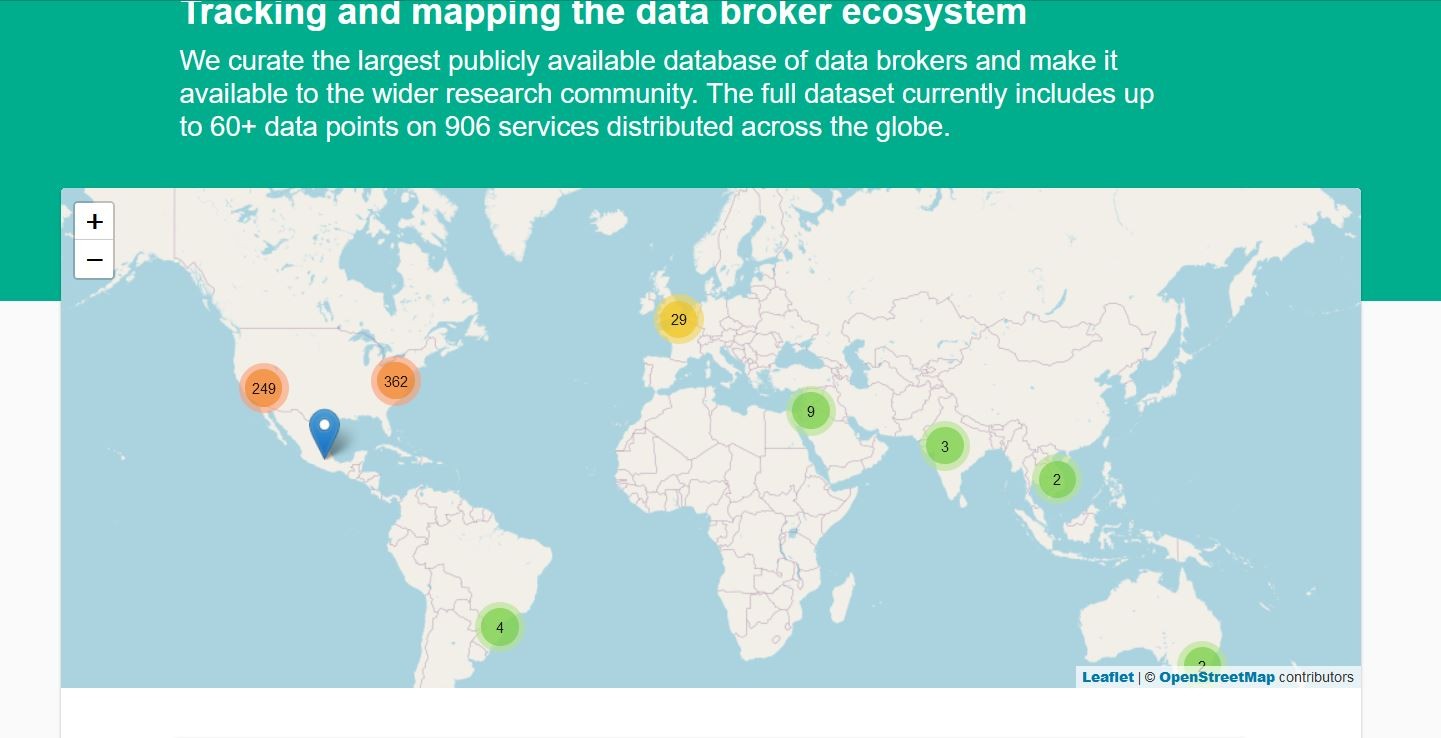Your privacy is a treasured commodity. It’s so valuable, there are battles over your information. We call it digital exhaust. Each login, each web page or Google look up you perform day-to-day, including all the info from everyone else remains logged somewhere. Eventually, that information is stolen.
It’s important to simply, leave LESS information around. Here’s some outstanding resources for doing your part in the battles, that makes you hard to poach.
Yes, you can tell family about it.
Bottom Line Up Front: YourDigitalRights.org is a free service that helps users regain control of their online privacy by making it easy to get organizations to delete or provide a copy of the personal information that they have on a user(s).
YourDigitalRights.org Overview

Data protection laws protect individuals with regard to the processing of their personal information by organizations. They define the responsibilities organizations have when processing personal information and grant individuals certain rights in relation to their data.
Many countries have data protection laws; some go further in terms of the protection they provide than others. (EDITOR’S NOTE: The site neatly lists the regions they support as well as the time frames they are obligated to respond within.)
YourDigitalRights.org works by automating the process outlined in powerful data protection laws that give users the right to delete or access their data. In addition to sending requests to organizations, the site can help ensure that requests are resolved in a user’s favor.
How It Works
YourDigitalRights.org supports two types of requests:
- Data Deletion Requests (also known as erasure requests or the right to be forgotten requests) allow users to ask an organization to delete their personal information.
- Access requests (also known as Subject Access Requests or SAR for short) allow users to ask an organization to provide a copy of their personal information.

The service is provided by a registered nonprofit organization called
Conscious Digital which believes in transparency, and therefore the source code for their service is open source. The site indicated they do not sell a user’s personal information, are not affiliated with any of the organizations which they help a user send data requests to. (EDITOR’S NOTE: As of October 2022, the website claims they have helped individuals submit more than 100,000 requests to various organizations).
The site also indicates that data protection laws provide various escalation mechanisms for such cases, including the possibility of filing a complaint against the organization with a government regulatory agency or taking the organization to court (called a private right of action) and that when users submit a data request via this service they can turn on the “Smart Follow-up Assistance” option to get personalized advice on what to do in case an organization has not complied with your request and assistance in escalating denials to the appropriate government regulatory agency. (EDITOR’S NOTE: You can use their extension and begin that process at the following link.)
DataBrokersWatch.org
Bottom Line Up Front: DataBrokersWatch.org curates the largest publicly available database of data brokers and makes it available to the wider research community. Their full dataset currently includes up to 60+ data points on 906 services distributed across the globe.
For background, Data Brokers are companies which collect personal data from various sources and then license this data to other organizations, typically without the knowledge or consent of the users involved. These services are a key enabler of the growing loss of privacy, rampant surveillance capitalism and micro-targeting through Digital Exhaust and misinformation and the addictive nature of digital experiences.

The site is extremely easy to navigate and takes the guesswork out of tracking down a less than transparent ecosystem. (EDITOR’S NOTE: Data broker companies purchase data in bulk and aggregate the data to create a proprietary database, or multiple databases, that house all their data. Personal data is incredibly fragmented, stored in thousands even millions of databases and data warehouses. Many different data providers own these databases and warehouses. Both data brokers and data resellers get their data from data providers… )
Conclusion
Both of these websites are very informative overall and the only draw back that I have seen is that they have Google Analytics and the Matomo tracking services enabled which can easily be rendered safe with an appropriate ad blocker. Overall these sites simplify what personally took me years of research and hundreds of hours of reading to understand so I wanted to get you these resources as soon as possible.
